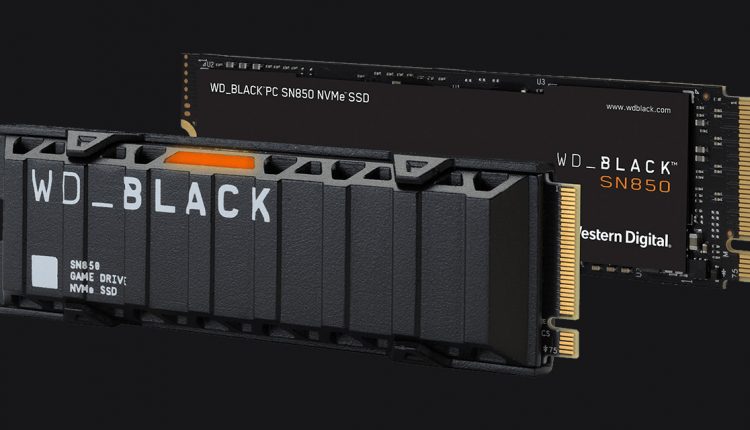©2021 Reporters Post24. All Rights Reserved.
One of Western Digital’s Black drives and one of the best SSDs on the market, the SN850, is significantly underperforming in writes speeds on X570 chipset motherboards when connecting the SSD to a chipset-connected M.2 slot, according to a report from ComputerBase. The company told the site it’s looking into the matter.
This strange situation started out when multiple people started complaining about performance results on tech forums, but it wasn’t until ComputerBase tested the SSD for themselves that the issue really became apparent.
Modern motherboards are equipped with a generous number of M.2 slots so consumers can use multiple SSDs. Due to the limited PCIe lanes on processors, not every M.2 port communicates directly with the chip. Some M.2 slots are connected to the chipset instead. In the case of AMD’s X570 motherboards, it’s public knowledge that there is a performance disparity between chipset-and processor-based M.2 slots. This is due to the higher latency on the former.
The difference in performance is typically less than 10% between a M.2 slot connected to the Ryzen processor and a M.2 slot wired to the X570 chipset. PCIe 3.0 SSDs are unaffected. The WD Black SN850, however, appears to suffer a major performance hit when accommodated in a M.2 slot that isn’t linked to the Ryzen processor.
For some reason, this handicap only seems to be affecting this particular SSD, and on the chipset lanes. If you installed this SSD directly to the CPU-controlled M.2 slot, there would be no performance penalty.
| CrystalDiskMark 8.0.1 | WD Black SN850 1TB via CPU | WD Black SN850 1TB via X570 | Performance Loss |
|---|---|---|---|
| SEQ1M Q8T1 | 5,254.8 | 3,247.8 | 38.2% |
| SEQ1M Q1T1 | 5,255 | 2,972 | 43.4% |
| RDN4K Q32T1 | 652.8 | 660.4 | N/A |
| RDN4K Q1T1 | 250 | 217.8 | 12.9% |
But when connected to the chipset M.2 slots, the performance is cut in half for write speeds. ComputerBase measured write speeds of 5,254 MBps for the SN850 when connected to the CPU-based M.2 slot. But when switching over to the chipset-controlled slot, performance was nearly cut in half to 3,247 MBps.
ComputerBase’s tests showed that the WD Black SN850 1TB lost up to 43.4% in write performance when the drive was installed on a M.2 slot hooked up to the X570 chipset. The drive achieved Western Digital’s advertised speeds when inserted into a M.2 slot coupled to the processor.
Apparently, sequential workloads were the most affected. The delta between random workloads, on the other hand, was less than 13%.
| CrystalDiskMark 8.0.1 | WD Black SN850 1TB via CPU | WD Black SN850 1TB via X570 | Performance Loss |
|---|---|---|---|
| SEQ1M Q8T1 | 7,067.5 | 6,304.2 | 10% |
| SEQ1M Q1T1 | 4,375.6 | 4,008.5 | 8.4% |
| RDN4K Q32T1 | 705.8 | 712.8 | N/A |
| RDN4K Q1T1 | 83.2 | 81.1 | 2.5% |
The nature of the M.2 slot didn’t have a significant impact on the WD Black SN850’s read performance. There was still a performance loss, but it was only around 10%, which is within the expected margin. It would seem that only the SN850’s write performance suffered a major drop.
When ComputerBase tested other SSDs, performance only dropped by 10% when using the chipset lanes. Having a minor drop like this is normal since the chipset is very far away from the CPU, and there could be latency penalties that will lower performance.
But a near 50% drop in speeds is not normal at all for the SN850. Western Digital is actively looking into the matter right now, so we should know more about this situation sooner than later. We suspect the chipset is downgrading the SN850 to Gen 3.0 support, as 3,200 MBps is a very common speed among Gen 3.0 SSDs.
Source: tomshardware.com


